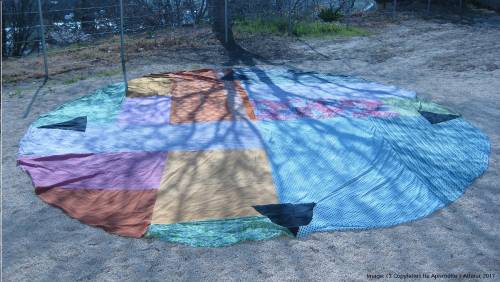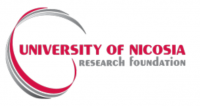Table of Contents

Free/Libre* Technologies, Arts and the Commons: An Unconference about Art, Design, Technology, Making, Cities and their Communities
The Unconference is organized by the University of Nicosia Research Foundation as part of project PHYGITAL, and co-organized in collaboration with the Fine Arts Programme, Department of Design and Multimedia, hack66, and the Municipality of Lakatamia.
Dates: Thursday, May 30th - Saturday June 1st, 2019
Location: University of Nicosia, Cyprus
Community Updates
- Preliminary Programme on the Future Worlds Centre website
- Silvia Federici is also coming!
- The Updated Schedule for the Unconference Free/Libre Technologies, Arts and the Commons is:
30/05/2019: 18.00-21.00 Richard Stallman keynote
31/05/2019: 09:00-20:00 Presentations and panels, including two keynote presentations by Gregory Sholette and Silvia Federici
01/06/ 2019: 10:00- 17:00 Unconference Participatory co-working sessions
Time adjustments might be made to the times of the second and third day
Please be advised that all coffee breaks and lunches during the conference will be provided by the organisers on 31/05 and 01/06.
- Participation in the Unconference is free and open.
- EXTENDED Deadline for first-day presentation submissions: 10/3/2019
- Please forward this call and join our backchannel: https://vector.im/beta/#/room/#hack66:matrix.org
Unconference Threads
* Richard M. Stallman suggests a change of title (initially “Free and Open Source Technologies, Arts and Commoning Practices” in order to preserve the distinction between the Free Software Movement, a movement for freedom, and the “open source” idea which is a rival posture which takes an amoral stance. Alternative suggestions from more to less preferable:
“Free/Libre Technologies, Arts and Commoning Practices”
“Free/Eleftheres Technologies, Arts and Commoning Practices”
“Freedom-Respecting Technologies, Arts and Commoning Practices”
“Libre Technologies, Arts and Commoning Practices”
“Free/Libre and/or Open Source Technologies, Arts and Commoning Practices”
Call
What kind of creativity comes after today’s digital cultures? After the smart city, post-surveillance, post-innovation, when social entrepreneurship discourse has ran its course?
In the last few years there has been a sharp momentum in the growth of groups and spaces that operate under collective and community-driven structures of collaboration and shared learning processes (onsite and online). This is happening in parallel to debates about the fate of the commons (physical, digital, and creative), and about openness and freedom of access. Our societies are at the same time, reeling from the effects of connectivity and social media just as we try to understand their potential and limitations for civic improvement, mobilization and/or abuse, and their extensions into socially and community orientated art and design.
In our times of digital communalities, bringing together issues related to art, design, technology, governance, and the commons, also means to reflect on contemporary discourses of openness and freedom, and to redefine the ways we produce and share knowledge, not least about new possibilities of production and sharing in themselves.
Considering our digital realisms and increasingly disparate lived realities, we wish to explore examples and approaches to activism in relation to social movements around making and sharing, critical artistic practices, and their related technological shifts. Especially as pockets of our cities are being transformed into creative and entrepreneurial hubs, and new setups of collective knowledge production blend into processes of urbanisation, regeneration and issues related to the smart city and its mechanisms of surveillance.
Confirmed speakers
Silvia Federici
Dr Richard M. Stallman
Dr Luiz Guilherme Vergara
Dr Johan Soderberg
Dr Gabriele de Seta
Harriet Poppy Speed and Dr Lynn Jones
Dr Gregory Sholette
Link to Bios
Unconference Format
This Unconference follows the momentum of a broader movement rethinking the academic conference format towards a more connected model of knowledge sharing, peer learning and collaboration. This allows presentations of research while it also allows participants to work together and set their own agenda in discussions, workshops, and co-working sessions, that respond to previous proposals as well as spontaneously emerging priorities. We will be hosting participants from a broad network of researchers and activists across fields, and connecting remotely with others.
The Unconference participants are invited to contribute to an Open Access Online Masterclass with the same theme. The event will connect with a local makeathon and later lead to an Exhibition that aims to communicate visually and interactively the outcomes of these debates. Developing a publication is one of the unconference’s main aims.
Thursday Evening May 30th: Keynote Friday, May 31st: A day of presentations and pre-organised panels, during which we will collectively formulate a plan for the Saturday, according to emerging priorities among the participants Saturday, June 1st: Discussions, workshops and co-working sessions designed according to the conclusions of the previous day
The Unconference participants are invited to contribute to an Open Access Online Masterclass with the same theme. The event will connect with a local makeathon and later lead to an Exhibition that aims to communicate visually and interactively the outcomes of these debates. Developing a publication is one of the conference’s main aims.\
How To Participate
- Show up!
- Submit and present something on May 31st: We invite abstracts for 15-20min presentations, panels or discussions, posters, remote video participations, and workshop proposals. To propose something please send title(s), 250 word abstracts, short bios, and contact details to: cycommons@protonmail.com Submission Deadline: 10/03/2019
- Help construct the second-day programme and join the discussions
- Participate remotely via backchannel or/and by sending in something for the on-site participants to consider
- Propose something for the Proceedings or the Online Masterclass
Join our Art, Tech, and the Commons Mailing List by emailing cycommons@protonmail.com
For queries please contact Evanthia Tselika tselika.e@unic.ac.cy and Chrystalleni Loizidou c@neeii.info
Provisional Themes
- the technology of participatory art, community art, and socially engaged art
- the art of the free and open source software movement
- social media mobilisation: necessary or abusive?
- free and open source community technologies and arts
- openness and/vs freedom in social, art, design and tech initiatives
- hacktivisms and artivisms / hacking the art and art hacking
- contemporary questions around community and civically driven art, design and technology
- hacking as culture
- hackerspaces and makerculture / hackerspaces and their politics
- shared learning - peer to peer
- “Design Global Manufacture Local”
- local vs global dimensions in community practice
- tech and art resistance discourses, their directions and overlaps
- freedom tech, tech freedom
- making and the commons: redefining public art / participatory art
- digital commons
- digital governance and social movements
- self-organisation discourse
- open data discourse
- networked cultures
- technology and policy / policy tech
Unconference Scientific Committee
Evanthia Tselika, University of Nicosia. (Chair)
Chrystalleni Loizidou, hack66/ Lakatamia Municipality. (Chair)
Maria Hadjimichael, University of Cyprus.
Niki Sioki, University of Nicosia.
Eva Korae, Cyprus University of Technology.
Marios Isaakidis, University College London.
Thrasos Nerantzis, Future World Centre.
Leandros Savvides, Leicester University.
Gabriele de Seta, Institute of Ethnology, Academia Sinica in Taipei, Taiwan.
Helene Black and Yiannis Colakides, NeMe.org.
Link to Bios


Project Phygital is implemented under the transnational Cooperation Programme “Balkan - Mediterranean 2014-2020” under the name «Catalysing innovation and entrepreneurship unlocking the potential of emerging production and business models». The Project is co-funded by the European Union and National Funds of the participating countries.
http://phygitalproject.eu